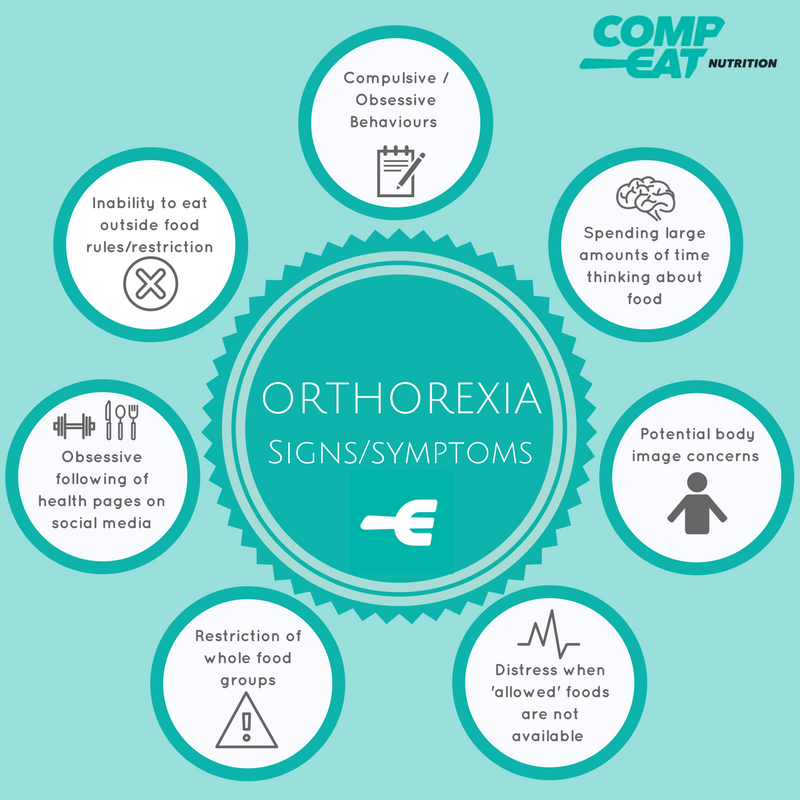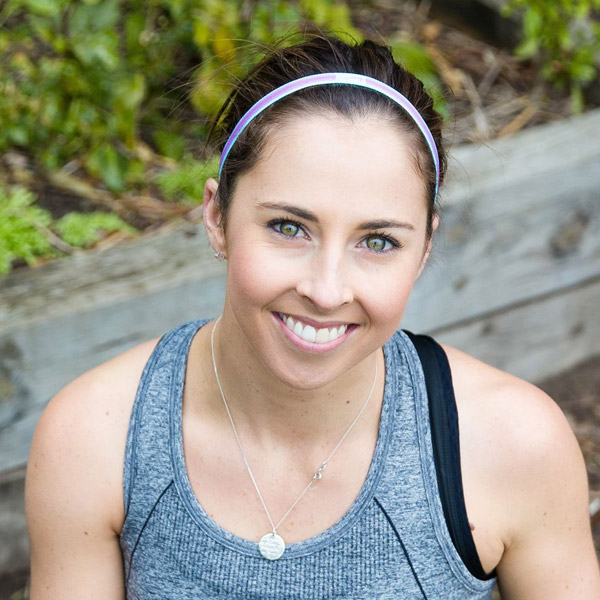Orthorexia: The Disorder Rising in the Social Shadows
Thankfully, the word Orthorexia is being spoken more and more frequently in social channels – but that still doesn’t mean it is well known or even heard of.
As our lives become more and more reliant on social media, particularly for younger generations that have never known different, the pressures around ‘clean eating’ have gained large amounts of momentum. Upon scrolling, you see stylised images of perfect meals, inclusions of extravagant ingredients and a sense of loss in ‘simple’ eating.
All of a sudden food has become more complicated and confusing than ever. The pressure to follow the particular ideals of a myriad of influencers is overwhelming. For some reason, food ‘rules’ often have no grey. You need to belong to a certain group whether that be clean eating, vegan, paleo, HFLC, IIFYM, the list goes on – be part of it 100% or not at all.
To say that following one of these ways of eating is the definition Orthorexia is far from what we intend to portray in this blog (Let’s face it, there are some serious clickbait articles out at the moment for Orthorexia!). You can absolutely follow a type of diet healthily, with balance and without restriction impacting your daily life.
However, for some, this restriction brings an increase in cases of clients feeling confused, fearful of food and showing signs of disordered eating patterns.
So what is Orthorexia?
Orthorexia Nervosa, or Orthorexia, is quite literally an obsession with eating foods that the individual deems as healthy.
Currently, Orthorexia is not recognised as a diagnosis within the Manual for Eating Disorders. However, it presents with similar patterns of behaviour and physical consequences to that of anorexia. They both share the obsession of the restriction of food. However the key difference is that Orthorexia is primarily focused upon the need to eat healthily rather than the need to lose weight.
It is the belief that each day is about being ‘good’ with intake. It begins with the desire to improve food and eat healthily, but this health focus can sometimes change into an obsession so restrictive that health, relationships and social life can all be impacted.
What can Cause Orthorexia?
This is a really complicated question and not something we can accurately predict. Some individuals are simply more prone to developing disordered eating patterns due to genetics, family history and mental health.
It is worth noting that Orthorexia is most often associated with a desire for control and gaining a sense of self-esteem from succeeding with restriction. With this, individuals with lower self-esteem, under pressure from a range of areas (or a life placed in chaos) or those with obsessive tendencies tend to be at higher risk.
Signs & Symptoms

- Restriction of whole food groups and forming identity around these restrictions;
- Compulsive behaviours such as obsessively checking ingredient lists or heavily tracking/counting daily intake;
- An inability to eat outside food rules/restrictions, only eating foods deemed to
be healthy; - Spending large amounts of time thinking about food, particularly around
events or anything outside your control; - High levels of distress and anxiety when foods deemed ‘healthy’ are not available;
- An obsessive following of healthy food and lifestyle pages on social media;
- Potential body image concerns with self-punishment behaviour over food choices.
Where to Seek Help
Although Orthorexia isn’t something that is yet able to be clinically diagnosed, recovery will most often require help and support. Seeking help early is the best preventative measure.
Step One: To identify a need for help is such a critical part in recovery;
Step Two: Your GP is a great first point of call – especially if you can seek a practitioner with experience in Eating Disorders. However, if you’re not at that step yet and need some advice, the National Eating Disorders Collaboration (NEDC) offers a range of helplines and support – see the link for more information – http://www.nedc.com.au/helplines
Step Three: Recovery will be have lots of different avenues and may involve different practitioners to really work through the psychological foundations to your current food restriction practices;
Recovery will not mean having to eat all the food you previously avoided or eating in a way that you would consider ‘unhealthy’. Recovery will be focused upon developing a freedom to food that provides a greater flexibility into what eating well and nourishing your body really is.
Take Home Message
Knowledge is power, and we hope that by highlighting this sensitive issue we can create some awareness and in turn bring about some really beneficial discussion. If you yourself have been feeling some of these symptoms, sometimes it can make all the difference in being able to have a name for it and a plan of action for the next step to treatment.
Health trends and diets will continue to appear and continue to be taken to the extreme, and the disordered eating patterns that ensue should never be overlooked as a ‘phase’. They are not normal and they should never be accepted as normal.
There is no shame in asking for help, we all deserve to enjoy one of life’s greatest pleasures – eating and enjoying food! Food is more than just it’s nutrients and it’s calorie value. Food is nourishment, it is social, it is enjoyable and it creates memories.
Cowritten by:
Aleisha Deane (Accredited Practising Dietitian) and Alicia Edge (Accredited Practising Dietitian & Advanced Sports Dietitian)

ALICIA EDGE HEAD SPORTS DIETITIAN
Alicia is the head Advanced Sports Dietitian at Compeat Nutrition. She is also a mum and triathlete, so advice extends beyond the basics and is instead focused on providing effective and achievable nutrition for both training and racing.